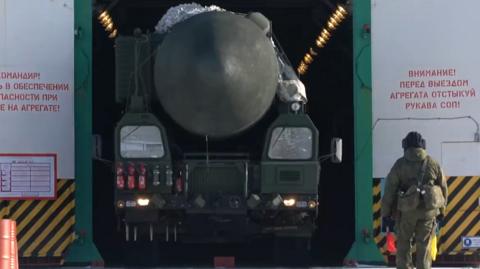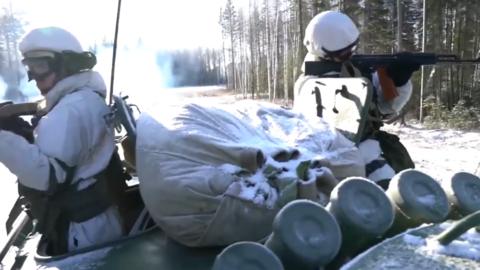Three days after troops poured over Ukraine’s borders, Vladimir Putin announced that Russia’s nuclear deterrence forces had been ordered into a “special mode of combat service”.
Anton says that combat alert was in place on day one of the war and claims his unit was “shut inside the base”.
“All we had was Russian state TV,” says the former officer, “I didn’t really know what it all meant. I automatically carried out my duties. We weren’t fighting in the war, we were just guarding the nuclear weapons.”
The state of alert was cancelled, he adds, after two to three weeks.
Anton’s testimony offers an insight into the top-secret inner workings of the nuclear forces in Russia. It is extremely rare for service members to talk to journalists.
“There is a very strict selection process there. Everyone is a professional soldier – no conscripts,” he explains.
“There are constant checks and lie-detector tests for everyone. The pay is much higher, and the troops aren’t sent to war. They’re there to either repel, or carry out, a nuclear strike.”
The former officer says life was tightly controlled.
“It was my responsibility to ensure the soldiers under me didn’t take any phones on to the nuclear base,” he explains.
“It’s a closed society, there are no strangers there. If you want your parents to visit, you need to submit a request to the FSB Security Service three months in advance.”

